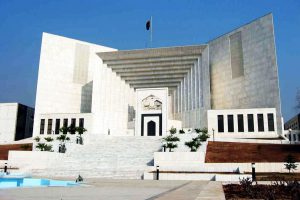Supreme Court of Pakistan: The Seven-Judge Bench of Mian Saqib Nisar, HCJ and Gulzar Ahmed, Azmat Saeed, Mushir Alam, Umar Ata Bandial, Ijaz Ul Ahsan and Mazhar Alam Khan Miankhel, JJ. was hearing a suo motu case pertaining to dual nationality of civil servants and officials of autonomous bodies.
Article 63(1)(c) of the Constitution of Islamic Republic of Pakistan states that a person is not eligible to be elected as a Member of Parliament if “he ceases to be a citizen of Pakistan, or acquires the citizenship of a foreign State”. Section 14(1) of the Pakistan Citizenship Act, 1951 does not permit dual citizenship, as a general principle. However, Section 14(3) of the said Act extends the privilege of dual nationality to persons acquiring citizenship of, inter alia, USA, Canada and the United Kingdom countries.
In view of the exception created under Section 14(3) of the Act, the question before Court was as to the interpretation of the word “or’ in Article 63(1)(c).
The Court affirmed the dictum in Syed Mehmood Akhtar Naqvi v. Federation of Pakistan, 2012 SCC OnLine Pak SC 59 and held that the intention of Constitution framers was to use the word “or” in Article 63(1)(c) disjunctively. This was done to cater for a separate distinct situation where a Pakistani citizen acquires a dual nationality of a foreign State under Section 14(3) of the Act, without loss of his Pakistani citizenship in terms of Section 14(1) of the Act. An interpretation to the contrary would render the phrase “acquires the citizenship of a foreign State” under Article 63(1)(c) of the Constitution redundant.
In view of the above, the Court examined the documents submitted by newly elected senators who were alleged of having dual nationality; and disqualified two of them as members of the Senate.[Dual Nationality of Parliamentarians, In re, 2018 SCC OnLine Pak SC 17, Order dated 17-10-2018]

